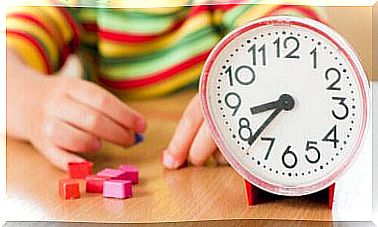Perfect Children Are Sad Children

Perfect children do not always know how to smile, nor how joy sounds. They are afraid of making mistakes and never reach the very high expectations of their parents. Their education is not based on freedom or recognition, but rather the authority of a strict and demanding voice.
According to the American Psychological Association (APA), depression in teens is already a very serious problem in today’s society. Excessive demands from parents easily lead to a lack of self-esteem, anxiety and great emotional discomfort.
One thing we must always keep in mind is that the demands of childhood leave irreversible imprints on the adult brain. We never see ourselves as competent enough, nor are we perfect enough based on the ideals instilled in us. We must therefore break this limiting chain, which hampers our ability to be happy.

It is often said that today’s education is not rigorous enough, that teachers and parents are overly permissive and that students have very low tolerance for frustration. However, this is not really true. In general, parents seek “excellence” from their children, and even more so in times of crisis.
If the children get a B in math, they are pressured to get an A. Their afternoons are filled with leisure activities and the time they have for themselves is limited to looking for more challenges. This causes stress, fatigue and helplessness.
The Price of Privilege is an interesting book written by Dr. Madeleine Levine, in which she explains that in our need to raise perfect children who are ready for the future, we instead succeed in raising children who are “disconnected from happiness”.

There is something we should keep in mind. We can educate our children in the culture of effort. We can and should demand certain things from them. There is no doubt about this, but everything has its limits. This limit should accompany your demands with an unconditional pillow of love and acceptance.
On the contrary, our perfect children will be sad children who experience the following emotions:
- Dependence and passivity : A child who has become accustomed to being told what to do will stop making decisions for himself. Therefore, it will only seek external permission and lose its spontaneity and personal freedom.
- Lack of emotion: Perfect children inhibit their emotions to adjust to “what needs to be done”. All this emotional repression will lead to major short- and long-term consequences.
- Low self-esteem: A child or teenager who has become accustomed to external demands has no self-control and no decision-making abilities.
- Frustration, resentment and inner discomfort can result in moments of aggression.
- Anxiety is another characteristic of children with an education based on demands. Any changes or new situations lead to personal insecurity or great anxiety.

The need to raise “perfect children” is a subtle and direct way of giving the world unhappy children. The pressure from these demands will always come with them. Even more so if we base their education on the absence of positive encouragement and affection.
It is clear that we as mothers and fathers want our children to be successful, but above all that they should be happy. No one wants their children to develop depression in adolescence or to have too high demands on themselves. We want to show them how to follow the flow, smile and allow themselves to make mistakes.
Now we must be able to distinguish between education and upbringing based on strict requirements and one based on understanding and emotional connection with our children.
- Demanding and critical parents tend to present an insecure personality who must have every detail under control. Understanding parents “push” their children towards a goal, while allowing them to explore, feel and discover things on their own. They serve as guides and do not try to make dolls or puppets of their children.
- Demanding parents are authoritarian and have a lifestyle that is always controlled by the clock. They set rules and make decisions to be able to save time based on the reasoning “because I know it’s best for you” or “because I am your mother / father”.
In conclusion: Educating means exercising authority, but with common sense. That means using affection as a cure and communication as a strategy.










